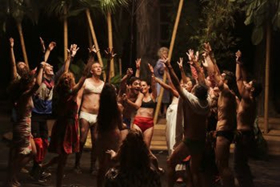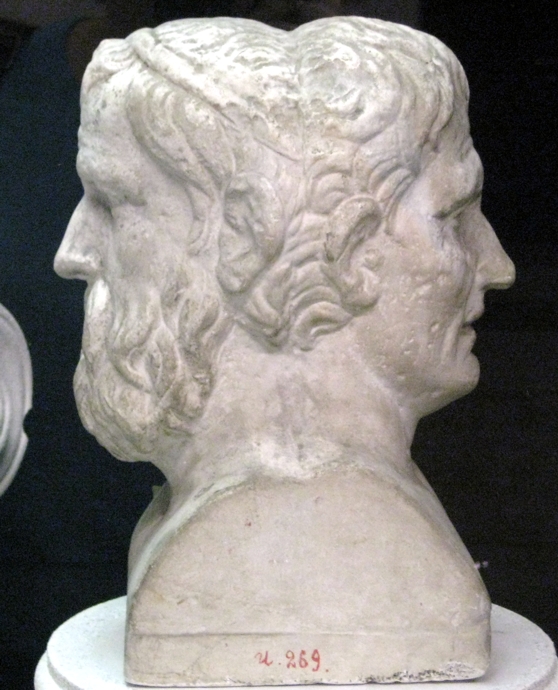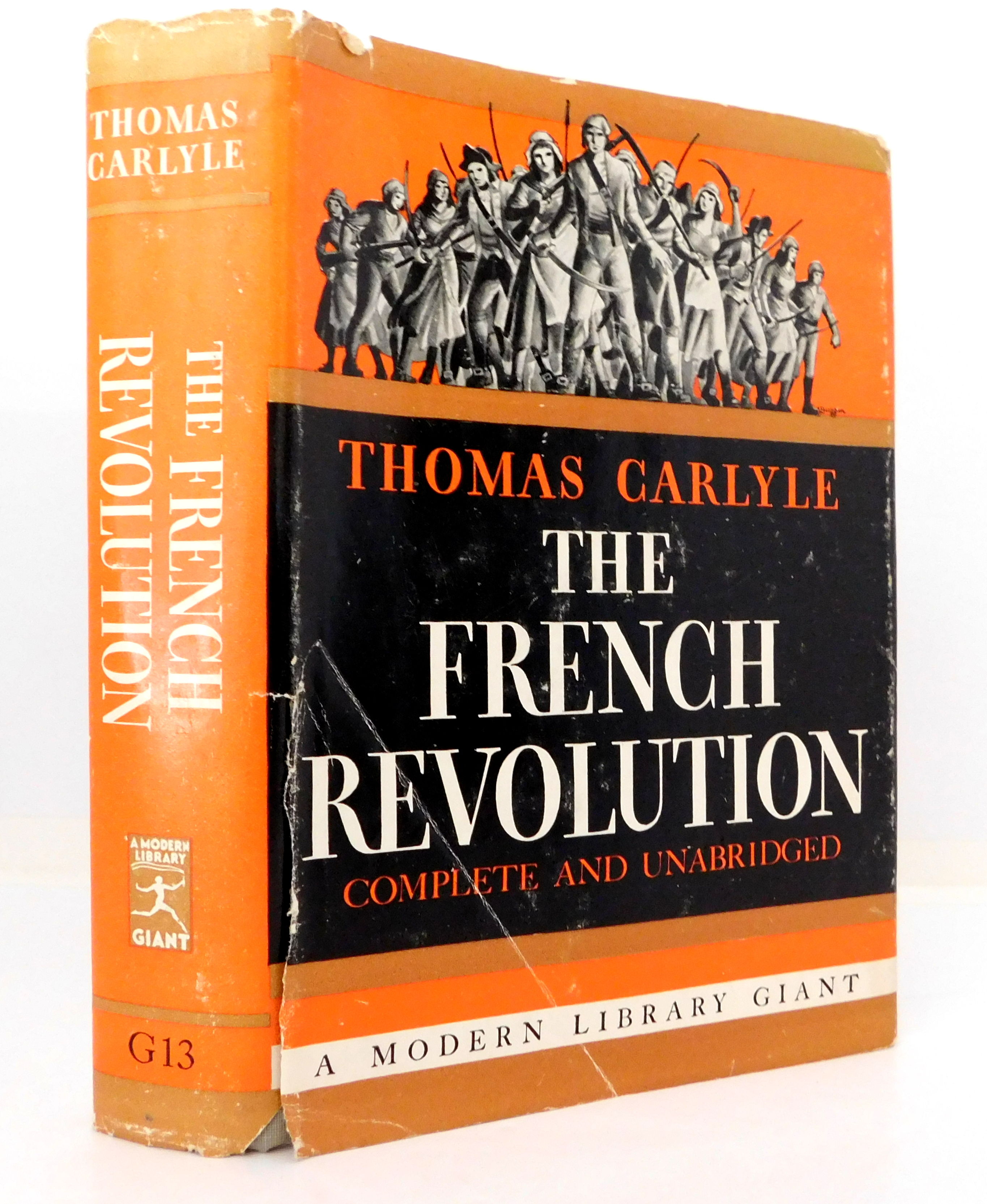Thus far at least on the IWE list, we have not had to go for too long of a stretch before coming once more upon one of the ancients. I think it is salubrious, for me at least, to maintain a semi-regular contact with him. Of the big four of the ancient Greek dramatists, Aristophanes is the one with whom I have overall the least acquaintance. We did read the Clouds (which is not, I don't think, on this list) at St. John's, which I remember as being a fairly lively seminar, and at some point I read Lysistrata, but that is all. The Birds is an energetic, almost frenetic play, with a lot of local jokes. It certainly helps to go into it with as much familiarity with the literature and philosophy of ancient Athens as possible. Even if you cannot appreciate every contemporary reference, you can sense why it would have been found funny at the time.
The IWE does not have a great deal to say about it. The full introduction reads:
"The Birds is one of the most admired satires of Aristophanes. This one is on governments and men in government: How universal and inevitable is the course of power, pride, and ambition."
This is one of those plays where the "characters" do not exist to portray distinctly individualized human beings but as vessels for ideas to be, in this instance, played around with and have their most absurd implications carried through. This kind of thing is enjoyable when it is done well, as it seems to be here, but most people are not quite clever or humorous enough to pull it off without making themselves look petty and ungenerous.
In keeping with my habits, I took just a couple of notes here to try to remember the play by.
p. 6 EPOS: And are you looking for a greater city than Athens?
EUELPIDES: No, not a greater, but one more pleasant to live in.
I liked this joke.
p. 7 Just to set the mood of Golden Age Athens:
PISTHETARUS: I want a town where the father of a handsome lad will stop in the street and say to me reproachfully, as if I had failed him, "Ah! Is this well done, Stilbonides? You met my son coming from the bath after the gymnasium, and you neither spoke to him, nor kissed him, nor took him with you, nor ever once felt his balls. Would anyone call you an old friend of mine?
I must admit I have never realized that this play was the origin of "Cloudcuckooland", which I only remembered as the title of a 1980s alternative record album, I thought by the Cocteau Twins (though it was actually by The Lightning Seeds, and was released in 1990).
p. 18 "...you declare a scared war against him (Zeus) and forbid the gods henceforward to pass through the country with their tools up, as they have been doing, for the purpose of laying their Alcmenes, their Alopes, or their Semeles!"
You see most people cannot speak in this way so matter of factly and to the point. They either overdo it, are too mealy-mouthed to make an effective point, or are too pridefully vulgar in themselves. This is rather bracing.
p. 26 LEADER OF SECOND SEMI-CHORUS: There is nothing more useful nor more pleasant than to have wings. To begin with, just let us imagine a spectator dying with hunger and weary of the choruses of the tragic poets; if he were winged, he would fly off, go home to dine and come back with his stomach filled.
p. 39 "As for you, his messenger, if you annoy me, I shall begin by getting between your thighs, and even though you are Iris, you will be surprised at the erection an old man can produce: it's three times as good as the ram on a ship's prow."
I suppose there is some irony in that now that he is feeling empowered he is talking towards the gods in the same tone he took disparagingly when describing their own potent aggressions. We are repulsed by this kind of threatening talk presented as humor, of course. At the same time, it does seem to show evidence of some spirit. I realize there are other and better ways to show spirit, though most of these do not seem to come naturally to even as many men as are motivated to talk bluntly about their erections.
p. 40 I'll finish with a Socrates joke. They seem to be a staple of Aristophanes's comedy.
"Before your city was built, all men had a mania for Sparta: long hair and fasting were held in honor, men went dirty like Socrates and carried staves. Now all is changed."
Though I did have a copy of this play in the Britannica great books set I got cute and thought I would order another edition, since those books have tiny print and are not easy to read, especially now that I am getting on towards fifty. The Modern Library does not appear to have included this in any of its collections, at least as far as I could tell. I got a 1959 Heritage Press edition of the "Birds" and the "Frogs" which is one of those big fancy looking books with illustrations that comes in a box. It's a pretty book. The translation is described as composite--a couple of professors made some alterations to a translation that was originally published "privately and anonymously". Honestly I don't know how good it was. My sense is that it could have been improved as far as making the humor ring out more clearly. You can see where it is intended and what its target is most of the time, but the reader has to fill in a lot of what the impact would have been.
The Challenge
1. Horn & Putnam--Petrus Romanus...…………………………………….843
2. Thomas Carlyle--The French Revolution...………………………………50
3. Gotthold Lessing--Laocoon………………………………………………..7
4. Richard Folkard--Plant Lore, Legends & Lyrics...………………………...7
5. The Poems of Heine (ed. Bowring)………………………………………...3
6. James A. Swanson--The Bush League of Nations...……………………….2
7. G. A. Henty--The Greek Waters...…………………………………………1
8. W. Warde Fowler--A Year With the Birds...……………………………….0
9. Richard F. Burton--Ultima Thule, Vol. 2...………………………………...0
10. The Illustrated Dictionary of Gardening...……………………………….0
11. W.T. Fernie--Meals Medieval...…………………………………………..0
12. State Machines (Numerous Authors)……………………………………..0
13. Adam Ford--Mindful Thoughts For Birdwatchers...……………………...0
I am going to have the zero-scorers play a separate qualifying round to whittle the field to ten. So the top 6 entries will get a double bye.
Round of Zero
#8 Fowler over #13 Ford
Both books are hopelessly obscure.
#9 Burton over #12 State Machines
The intrepid adventurer Burton remains well-known at least, though his book about Iceland is not.
#11 Fernie over #10 Illustrated Gardening
One of the lowest-rated contests we have yet had.
7-11 Round
#7 Henty over #11 Fernie
#9 Burton over #8 Fowler
So far not a single book that is held in one of my qualifying libraries
Final 8
#9 Burton over #1 Horn & Putnam
Despite being an overwhelming 1-seed, Petrus Romanus looks like a weird book about aliens, the antichrist, secret Vatican workings and the like, and it is also 600 pages.
#2 Carlyle over #7 Henty
#3 Lessing over #6 Swanson
Amazing how none of these books are carried in libraries, even the Lessing.
#5 Heine over #4 Folkard
There are some volumes of Heine available, though not this particular edition, which has, suspiciously, qualified for the challenge before.
Final 4
#2 Carlyle over #9 Burton
Carlyle's book is gigantic, at a time when I am really struggling to find any free moments to keep up with the C-list. However, it is supposedly a masterpiece, and when else am I going to read it?
#5 Heine over #3 Lessing
I can't get over the failure of Lessing to be carried anywhere.
Championship
#2 Carlyle over #5 Heine
There is no reasonable path by which I can persuade myself out of Carlyle winning in this field.






No comments:
Post a Comment